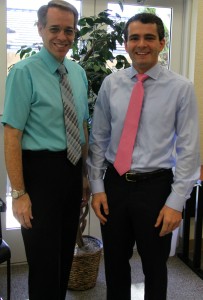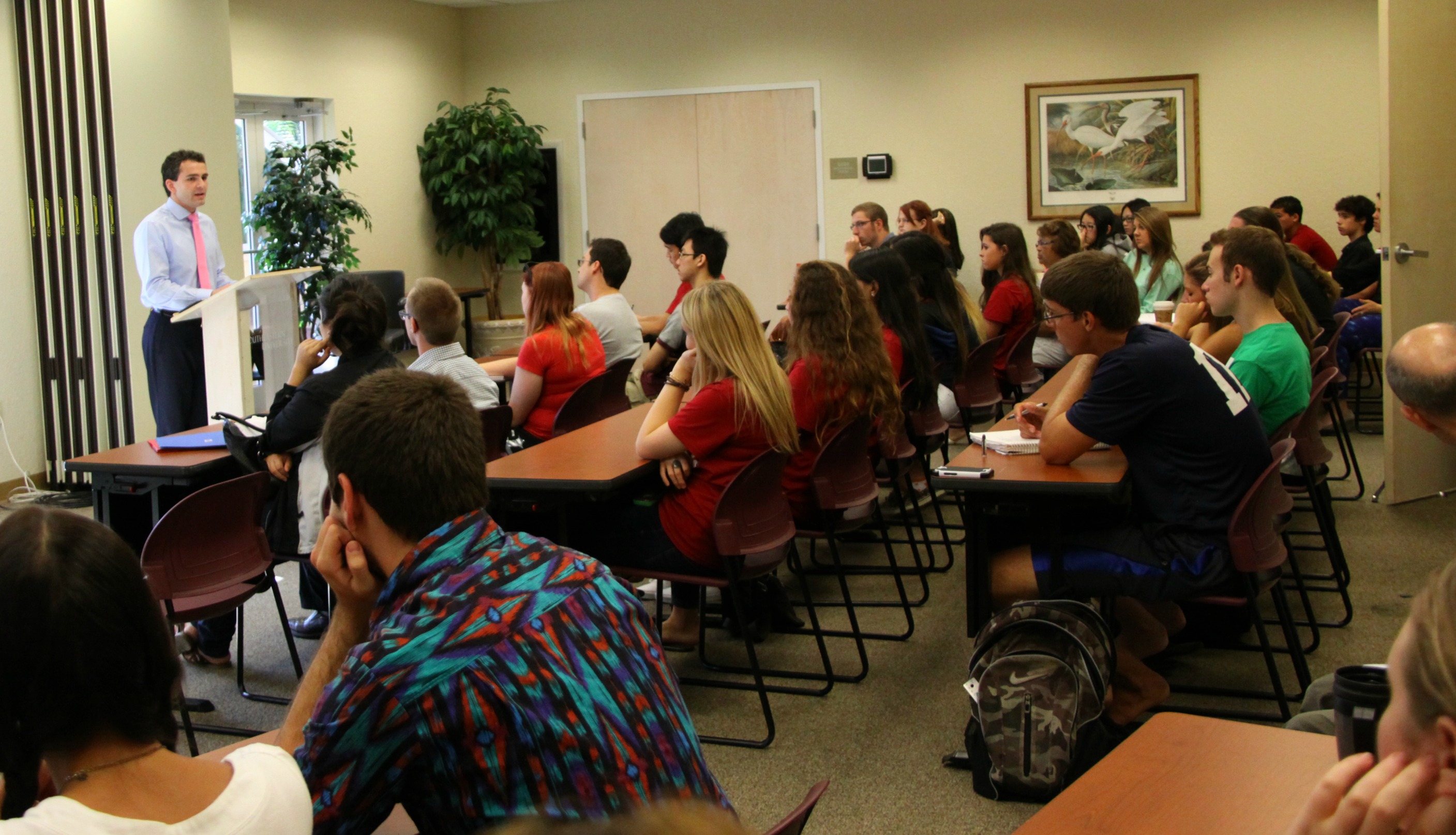On September 17, 1787, thirty-nine men put their signatures on a document intended to chart a course for the future of the fairly new United States of America. Each year, we commemorate that event as we celebrate one of the best set of by-laws ever created by a nation. At Southeastern, we always seek to use that commemoration to help students, faculty, and staff appreciate more fully what these men did, as they labored over the concepts and wording to be presented to the people for ratification.
In past years, we’ve been blessed to have excellent speakers for Constitution Day: John Ashcroft, the former attorney general; Charles Canady, the current chief justice of the Florida Supreme Court and a former congressman who served as one of the House Managers for the impeachment trial of Bill Clinton; and Michael Farris, founder of the Home School Legal Defense Association and Patrick Henry College.
 This year, we reached into the Heritage Foundation, one of the premier public policy research arms in the nation, and were pleased to invite to campus Mr. Ryan Anderson, Heritage’s William E. Simon Fellow in Religion and a Free Society. Anderson is co-author of a book entitled What Is Marriage? Man and Woman: A Defense. He’s also an expert on religious liberty and the essential nature of a civil society.
This year, we reached into the Heritage Foundation, one of the premier public policy research arms in the nation, and were pleased to invite to campus Mr. Ryan Anderson, Heritage’s William E. Simon Fellow in Religion and a Free Society. Anderson is co-author of a book entitled What Is Marriage? Man and Woman: A Defense. He’s also an expert on religious liberty and the essential nature of a civil society.
Anderson offered two sessions: “Threats to Religious Liberty in America Today” and “A Conservative Understanding of Social Justice.” Personally, I was gratified to see how well attended both sessions were. I had hoped the subject matter would attract great interest, and I was right.
In the first session, Anderson spent some time laying the groundwork for what the Founders did for religious liberty. How can one understand what the current threats are if one doesn’t have a working knowledge of what was intended? America, he showed, set up a polity whereby no one would be persecuted for one’s religious beliefs. That didn’t mean, though, that the Founders were apathetic to religion; instead, they grasped the truth that government should not be the judge of religious truth. That goes beyond the scope of the civil government.
After surveying the attitudes and reasoning of the Founders, Anderson then turned to the various and ever-increasing threats we now face with respect to religious liberty. He cited a flurry of episodes just in the past few months that have seriously curtailed religious liberty in general, but more specifically, the liberty of evangelical Christians to practice their faith publicly. The Obama administration has pushed an agenda to change freedom of religion into freedom of worship, meaning we can do whatever we want within the four walls of our churches but must never allow those beliefs to affect the public sphere. The “rights” of minorities—in particular, homosexuals—trump religious liberty rights, at least in the minds of those at the helm of our federal government at the moment. Those in attendance—an overflow with some sitting on the floor—seemed appropriately impressed with the danger we now face.
In his second session on social justice, Anderson contrasted two extreme views of that term—the rigid libertarian vs. the government welfare models—and showed the weaknesses of both. The liberal, progressive welfare state, he said, does not achieve genuine justice; it merely redistributes money and traps people in poverty. On the other hand, a too-doctrinaire libertarianism doesn’t take into account the common good; it simply advocates individual license to do whatever one desires. A truly Biblical and conservative position, he contended, recognizes the essential nature of the free market as the only path to a vibrant economy and the way out of poverty, while simultaneously encouraging those who succeed to actively work on behalf of those who are struggling.
Anderson’s presentations were cogent, articulate, and well-reasoned. Many who attended have told me how valuable they were to the ongoing conversation we need to have on these issues and how much they appreciated what he brought to the discussion. This is what a university should be. We saw it in operation this week.
Now, let’s work to preserve what we can of our Constitution. We dismiss its wisdom at our peril.

